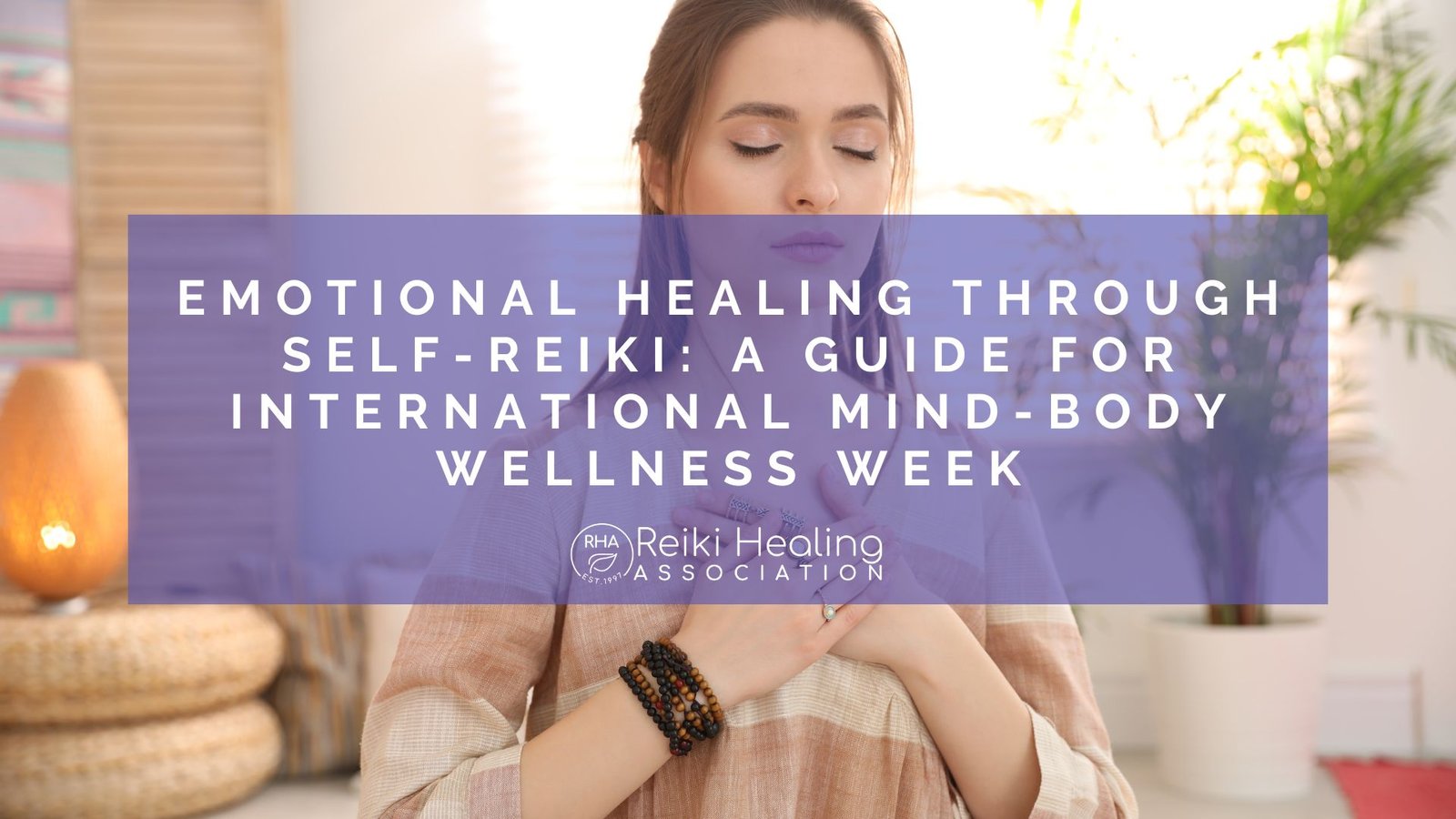
Emotional Healing Through Self-Reiki: A Guide for International Mind-Body Wellness Week
International Mind-Body Wellness Week (January 13-19) is a wonderful opportunity to explore holistic approaches to emotional healing and inner balance. As a Reiki practitioner, offering workshops on self-Reiki for emotional well-being can empower your clients to take charge of their own healing journeys. Here’s a guide to designing and hosting transformative workshops that focus on emotional balance through self-Reiki.
1. Why Focus on Emotional Healing?
Emotional wellness is a cornerstone of overall health. Stress, unresolved emotions, and daily pressures can disrupt our energy flow, leading to imbalances in the body and mind. Self-Reiki provides a simple yet powerful way to:
- Release emotional blockages.
- Restore inner harmony and peace.
- Build resilience and self-compassion.
During Mind-Body Wellness Week, people are especially open to learning techniques that enhance their emotional well-being, making it the perfect time to introduce self-Reiki practices.
2. Designing Your Workshop
To create an engaging and impactful workshop, structure it around these key elements:
Introduction to Emotional Healing and Reiki
- Briefly explain the connection between emotions and energy flow.
- Highlight how self-Reiki can help balance emotions and promote inner peace.
- Share personal or client success stories to illustrate its benefits.
Understanding the Chakras and Emotional Energy
- Provide an overview of the chakras, focusing on those most tied to emotional health:
- Root Chakra: Security, grounding, and stability.
- Solar Plexus Chakra: Confidence, personal power, and resilience.
- Heart Chakra: Love, compassion, and forgiveness.
- Third Eye Chakra: Intuition and emotional insight.
- Teach participants how to recognize imbalances in these chakras and their emotional effects.
Guided Self-Reiki Practice
Walk participants through a step-by-step self-Reiki session:
- Grounding: Start with deep breaths and visualizing roots connecting them to the earth.
- Hand Positions: Teach the basic hand placements for self-Reiki, focusing on key chakras for emotional balance.
- Affirmations: Incorporate positive affirmations like:
- “I am grounded and secure.”
- “I release what no longer serves me.”
- “I am worthy of love and compassion.”
- Visualization: Guide participants to imagine a soothing light (e.g., green or pink) flowing through their body, bringing healing to areas of tension.
3. Tools and Techniques to Enhance Emotional Healing
Introduce participants to complementary practices they can combine with self-Reiki:
- Journaling: Encourage writing down feelings and insights that arise during or after self-Reiki sessions.
- Crystals: Recommend crystals like rose quartz (for love and compassion) or amethyst (for calming the mind).
- Aromatherapy: Suggest essential oils like lavender, ylang-ylang, or bergamot to create a soothing environment.
4. Creating a Safe and Supportive Space
Emotional healing requires vulnerability, so it’s essential to create a nurturing environment:
- Begin with an opening circle to set intentions and foster connection.
- Remind participants that all emotions are valid and that this is a judgment-free space.
- Provide opportunities for sharing, but ensure it’s optional.
5. Encouraging Long-Term Practice
To help participants integrate self-Reiki into their routines:
- Share a take-home guide with step-by-step instructions and affirmations.
- Recommend practicing self-Reiki daily or as needed for emotional support.
- Offer follow-up sessions or additional workshops to deepen their practice.
6. Promoting Your Workshop
Use International Mind-Body Wellness Week as a springboard to attract participants:
- Social Media: Create posts that highlight the benefits of emotional healing through self-Reiki. Use hashtags like #MindBodyWellnessWeek and #EmotionalHealing.
- Email Newsletters: Send out invitations to your audience, emphasizing how self-Reiki can support their emotional well-being.
- Collaborations: Partner with local wellness centers or online communities to reach a broader audience.
7. Measuring Impact and Feedback
After the workshop, gather feedback to understand its impact:
- Use a short survey to ask participants about their experience and any changes they’ve noticed.
- Share testimonials (with permission) to inspire others to join future workshops.
- Reflect on what worked well and identify areas for improvement.
Final Thoughts
Self-Reiki is a powerful tool for emotional healing, making it an ideal focus for International Mind-Body Wellness Week. By offering workshops that teach this practice, you can empower individuals to take charge of their emotional well-being and foster a deeper connection between mind, body, and spirit. Whether you’re guiding newcomers or experienced Reiki practitioners, this week is the perfect opportunity to spread healing and balance. 🙏🏻

